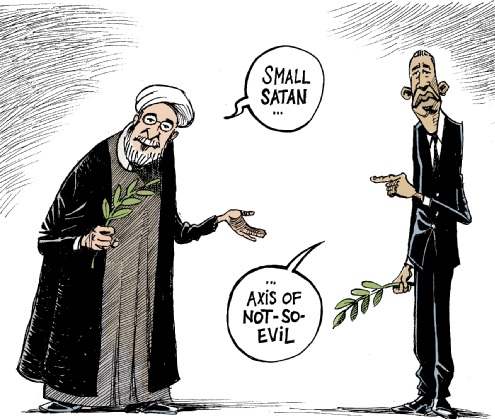Roping off the Middle East and letting them solve their own problems sounds like a good idea, but simply won’t work. President Obama is facing the problem head on. Here is an interview by Jeffrey Goldberg in which the President describes his plans and hopes.
Tensions between the U.S. and the Gulf states, I came to see, have not entirely dissipated. Obama was adamant on Tuesday that America’s Arab allies must do more to defend their own interests, but he has also spent much of the past month trying to reassure Saudi Arabia, the linchpin state of the Arab Gulf and one of America’s closest Arab allies, that the U.S. will protect it from Iran. One thing he does not want Saudi Arabia to do is to build a nuclear infrastructure to match the infrastructure Iran will be allowed to keep in place as part of its agreement with the great powers. “Their covert—presumably—pursuit of a nuclear program would greatly strain the relationship they’ve got with the United States,” Obama said of the Saudis.
In the wake of what seemed to have been a near meltdown in the relationship between the United States and Israel, Obama talked about what he called his love for the Jewish state; his frustrations with it when it fails to live up to both Jewish and universal values; and his hope that, one day soon, its leaders, including and especially its prime minister, will come to understand Israel’s stark choices as he understands Israel’s stark choices. And, just as he did with Saudi Arabia, Obama issued a warning to Israel: If it proves unwilling to live up to its values—in this case, he made specific mention of Netanyahu’s seemingly flawed understanding of the role Israel’s Arab citizens play in its democratic order—the consequences could be profound. Obama and the Middle East

